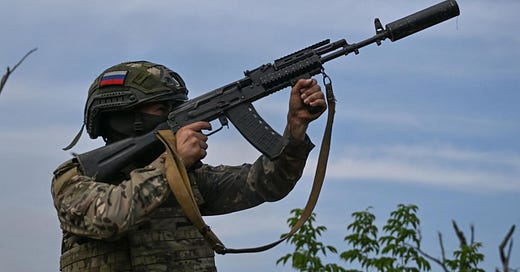Russia Halts Ukraine Advance, Claims NATO Involvement in Kursk
Austrian Armed Forces officer Markus Reisner further emphasized the riskiness of the Ukrainian offensive, arguing that "with its meager resources to start with, it must now cope with three fronts."
Moscow, Russia - The Russian Defense Ministry claims to have successfully halted a Ukrainian offensive in the Kursk region, inflicting heavy losses on Ukrainian forces and uncovering evidence of NATO involvement in the operation, writes Winston Mwale.
The ministry reported that strikes on Ukrainian military concentrations in the Kursk area have resulted in the loss of personnel and equipment equivalent to four brigades.
Over the past 24 hours, Ukraine allegedly lost up to 350 troops, four tanks, and over 20 other vehicles, bringing the total losses since the incursion began to over 4,100 troops and 58 tanks.
Akhmat special forces commander Apti Alaudinov stated that Ukrainian forces have been pushed back in all directions and that Russian forces have begun reclaiming captured settlements.
Alaudinov also claimed to have discovered "a huge number of foreign mercenaries" within Ukrainian ranks, some of whom he believes to be NATO servicemen.
He also alleged that evidence has emerged of civilians being "shot point-blank" in occupied territories.
Adding to these claims, Russian media identified a photo published by US private military company Forward Observation Group that appears to show three of its mercenaries participating in the Kursk attack.
A captured Ukrainian driver, Vitaly, from the 92nd Assault Brigade, told Russian interrogators that Kyiv is facing "very heavy losses" in the Kursk region.
Former German military advisor Erich Vad echoed this sentiment, suggesting to German media that the Kursk offensive was meant to distract Russia and save Ukraine from defeat in Donbas but ultimately failed.
He criticized the media for exaggerating Ukraine's successes, characterizing them as "local and strategically insignificant."
Austrian Armed Forces officer Markus Reisner further emphasized the riskiness of the Ukrainian offensive, arguing that "with its meager resources to start with, it must now cope with three fronts."




